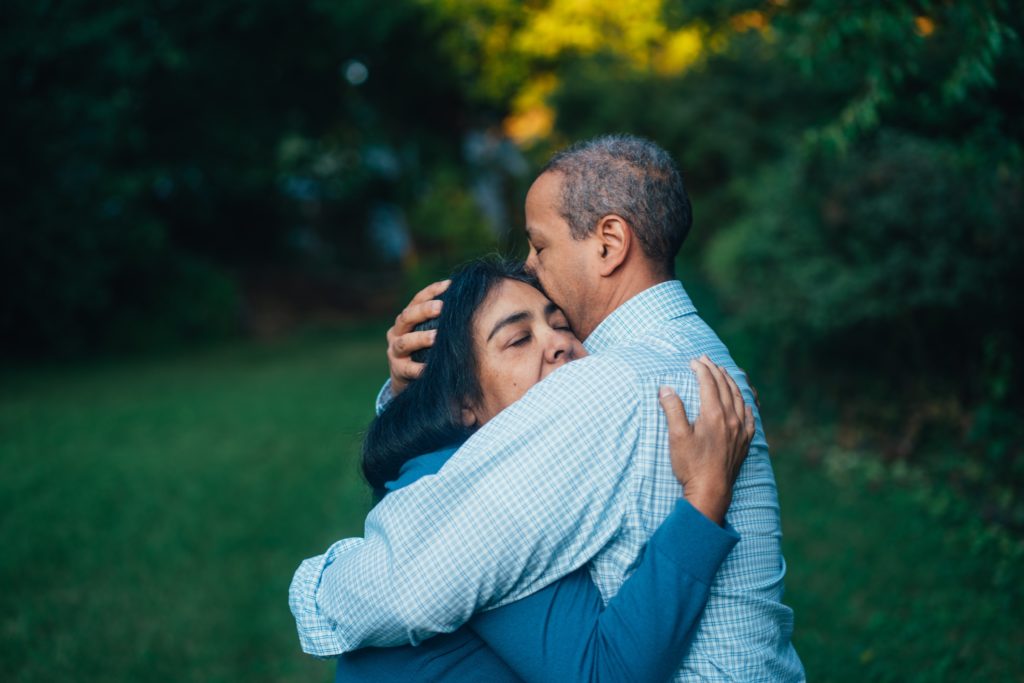
Thankful for Forgiveness

Forgiveness isn’t just something you do for other people; it’s something you can do for yourself.
Forgiveness allows you to release the anger and frustration that comes with being hurt.
Even when you forgive someone, they might be unaware of the problems they created or the hurt they caused.
Why You Should Forgive
It’s hard to forgive. But holding onto the pain and hurt, even if it’s justified, harms our physical and emotional health. By choosing to cling to feelings of anger and resentment, we rob ourselves of joy. When we choose not to forgive, the only person we hurt is ourselves.
Forgiveness in Marriage
Guess what? Forgiveness in marriage works the same way. Not forgiving your spouse takes more of a toll on you than on them.
A choice to withhold forgiveness is a choice to let your relationship deteriorate. Feelings of anger, pain, hurt, bitterness, and frustration will increase. And even if you’re right and they’re wrong – even if they don’t deserve forgiveness – clinging stubbornly to the truth that you’re right and they’re wrong will only fill your life with misery and unhappiness.
What Forgiveness Does
Forgiveness in marriage means letting go of resentment, opening the doors to happiness and freedom. Forgiveness can create a new beginning, giving your marriage the fresh start and clean slate it needs.
Forgiving another person takes strength and character. But nursing a grudge takes even more strength and energy, draining your life of love, happiness, and peace.
Forgiveness Isn’t About Forgetting
A common mistake is confusing forgiveness with forgetting.
You can forgive, but will you forget? Probably not. Perhaps it’s something you shouldn’t ever forget. Chances are, you’ll always remember the injustice, but when forgiveness happens, you release the negative emotions that are tied to the event. The time will come when you can remember the situation without feeling or reliving the emotional trauma.
Forgiveness Isn’t A Feeling
Another misconception is that forgiveness is a feeling. It isn’t a feeling…it’s a decision; a choice. You must decide that you will wipe the slate clean because you realize that the alternative is even harder to live with. You create a positive future by allowing the negative emotions you feel today to fade over time.
Forgiveness Is Letting Go of the Past
Forgiveness in marriage means you don’t keep throwing the past in your spouse’s face. Nothing screams bitterness and anger more than dredging up past hurts during times of anger. Keep arguments contained to the here and now.
Forgiveness Means Not Seeking Revenge
Forgiveness in marriage means not seeking revenge. It means accepting the fact that you may never know or understand the reason for the transgression. Remember that forgiveness doesn’t mean you condone or disregard the behavior. Forgiveness is a chance for your spouse to change their behavior and for you to work on the situation so it doesn’t happen again.
Create a Forgiveness Ceremony
Forgiveness takes time and patience. Even if you genuinely desire to let go of your deep-seated feelings of anger and bitterness, offering forgiveness might be a real struggle. Sometimes a physical event will encourage you to release the feelings and help you to move on. One such event is a ceremony.
Whether someone has asked you to forgive them or not, the day comes when you realize that harboring bitter feelings is hurting you more than the other person.
One thing that helps is to write a letter; put everything down on paper and release it from your soul. Write a letter to your spouse, include all your hurts and disappointment over the transgression. Put it away for 24 hours and then take it out again. Re-read it, add to it if you feel like it, and then burn it, releasing all of the negative thoughts, feelings and emotions you’ve been harboring.
Never share the letter with your spouse; it was never meant for them – it’s for you to help you forgive the past situation so you can embrace a happier, healthier tomorrow. Sharing the letter would only add fuel to the fire, increasing feelings of anger and frustration.
No relationship, marital or otherwise, can be sustained without forgiveness. Forgiveness is crucial. Everyone makes mistakes, even you. There will be many times when you will need to seek forgiveness from your spouse. So be generous in giving and receiving forgiveness.
Forgiveness Doesn’t Mean Living With Abuse
Forgiveness in marriage doesn’t mean suffering verbal, mental, emotional, or physical abuse, nor does it mean continuing to live with a man or woman who continues to betray, lie, and cheat. You can forgive but also choose to say enough is enough and move on.
Without forgiveness, the relationship can’t heal, your health will suffer, and you’re destined to live in a sea of negative emotions. Forgiveness is the smart choice because it restores your joy, peace of mind, and sets YOU free.